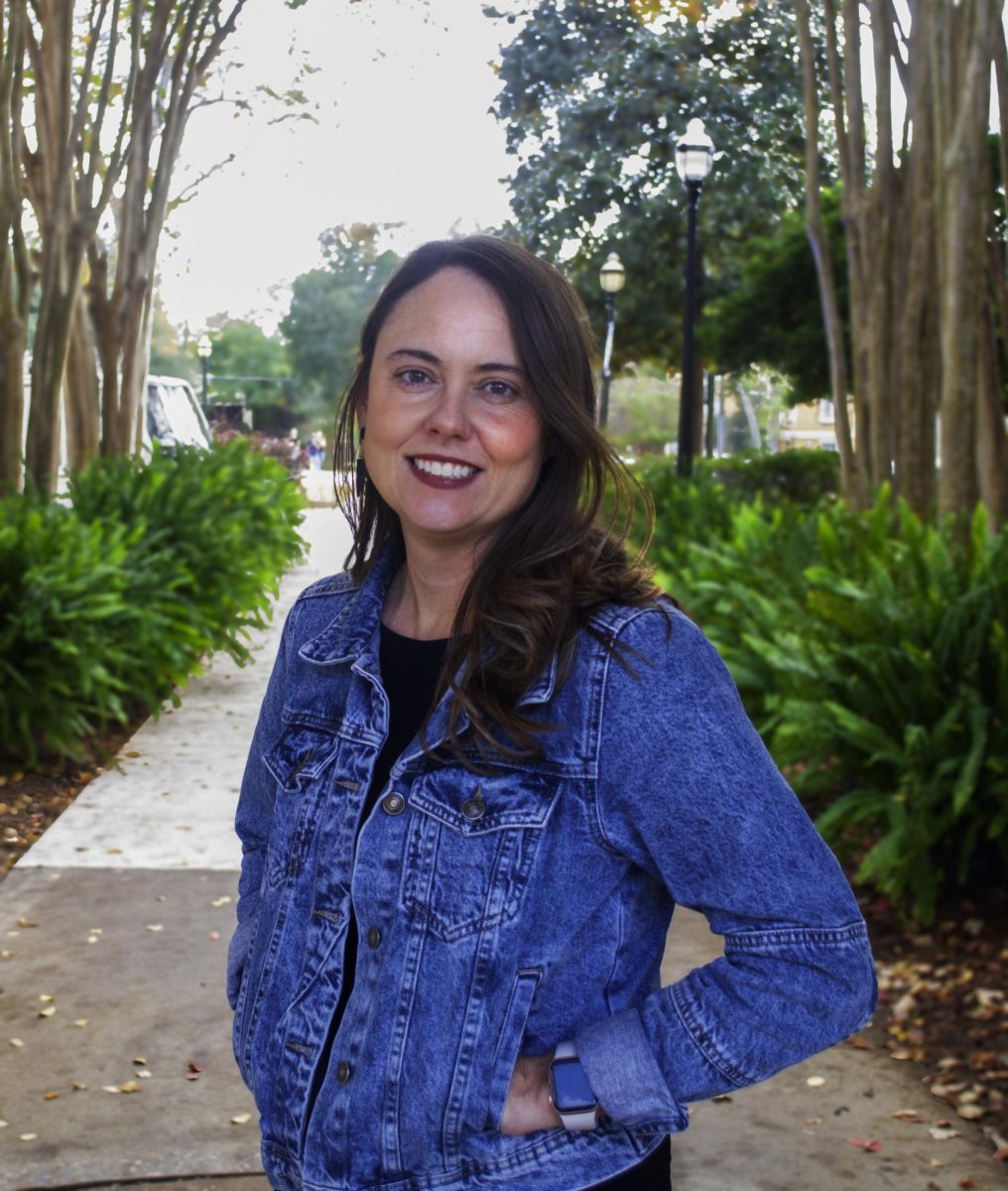According to the American Music Therapy Association, music therapy is a clinical and evidence-based practice that uses music to address individuals’ physical, emotional, cognitive and social needs. It is a therapeutic approach conducted by certified music therapists who tailor interventions to a person’s specific needs, using techniques like singing, playing instruments, listening to music or composing.
This form of therapy has shown remarkable benefits in various settings, including hospitals, schools, rehabilitation centers and mental health facilities.
Katie Whipple is a lecturer and coordinator for the undergraduate music therapy program. She earned her bachelor’s in music therapy in 2006 at GCSU and then later pursued a master’s in music therapy in 2011 at GCSU. She also earned her doctorate of education with an emphasis on higher education from Valdosta State University.
Whipple teaches many different courses from undergraduate to graduate programs.
“Each class explores the effects music has on human health and well-being in some way,” Whipple said. “For example, we can use music to promote physical skills, develop and rehabilitate speech, exercise our cognitive abilities such as attention and memory, explore and express our emotions, connect with others and meet sensory needs. Each class focuses on different aspects or populations, but they all include a focus on the therapeutic aspects of music.”
According to Whipple, some classes focus on the clinical side through experiential learning. One of these classes is “Music Therapy Practicum with Children.” This class offers students ways to plan and lead music therapy sessions with children and adolescents at various facilities.
“One of my favorite classes to teach is an upper-level course called Psychology of Music,” Whipple said. “We explore theories on the evolutionary origins of music, factors that influence our music perception, the connections between music and emotion, and our neurological responses to music and other topics. It is an exciting class, and now that I have finished with my dissertation research, I’d like to develop a research project involving students investigating some of these topics together.”
Through the years of Whipple’s teaching, she has learned many different things from her students.
“I always need to be aware of changes in our field,” Whipple said. “Not just changes to clinical practice but also changes in our clients’ needs. While we train students on 116 professional competencies set forth by the American Music Therapy Association, we still have to tailor and update our teaching so that students’ education and training prepare them for the current and future professional world.”
Passionate about fostering both enthusiasm and resilience among her students, Whipple shares how she keeps her classroom energized and motivated despite the demands of a rigorous program.
“I want to get students excited about the material,” Whipple said. “I teach mostly music therapy majors, so this isn’t very difficult, but our program is very rigorous and includes high credit loads for most semesters. Helping students stay excited and engaged with the course material can go a long way to preventing burnout and helping them achieve their goal to become a music therapist.”
Whipple highlights the value of hands-on experience and preparation for those interested in pursuing music therapy, as well as advice for students who are thinking about the major.
“We love to have prospective students observe our music therapy classes, music classes and major ensembles,” Whipple said. “It also gives them a chance to meet professors and students to better learn what life is like as a music therapy major and the profession as a whole. I also recommend prospective students start learning some piano and guitar skills in addition to a primary instrument and music theory. Music is our toolkit, so anything they can do now to start developing those skills, the better.”
Whipple’s dedication to her students and the field of music therapy is evident in her approach to education and mentorship. Through rigorous yet engaging programs, hands-on experiences and an emphasis on foundational skills, she ensures her students are well-prepared for the challenges and rewards of this meaningful profession.


